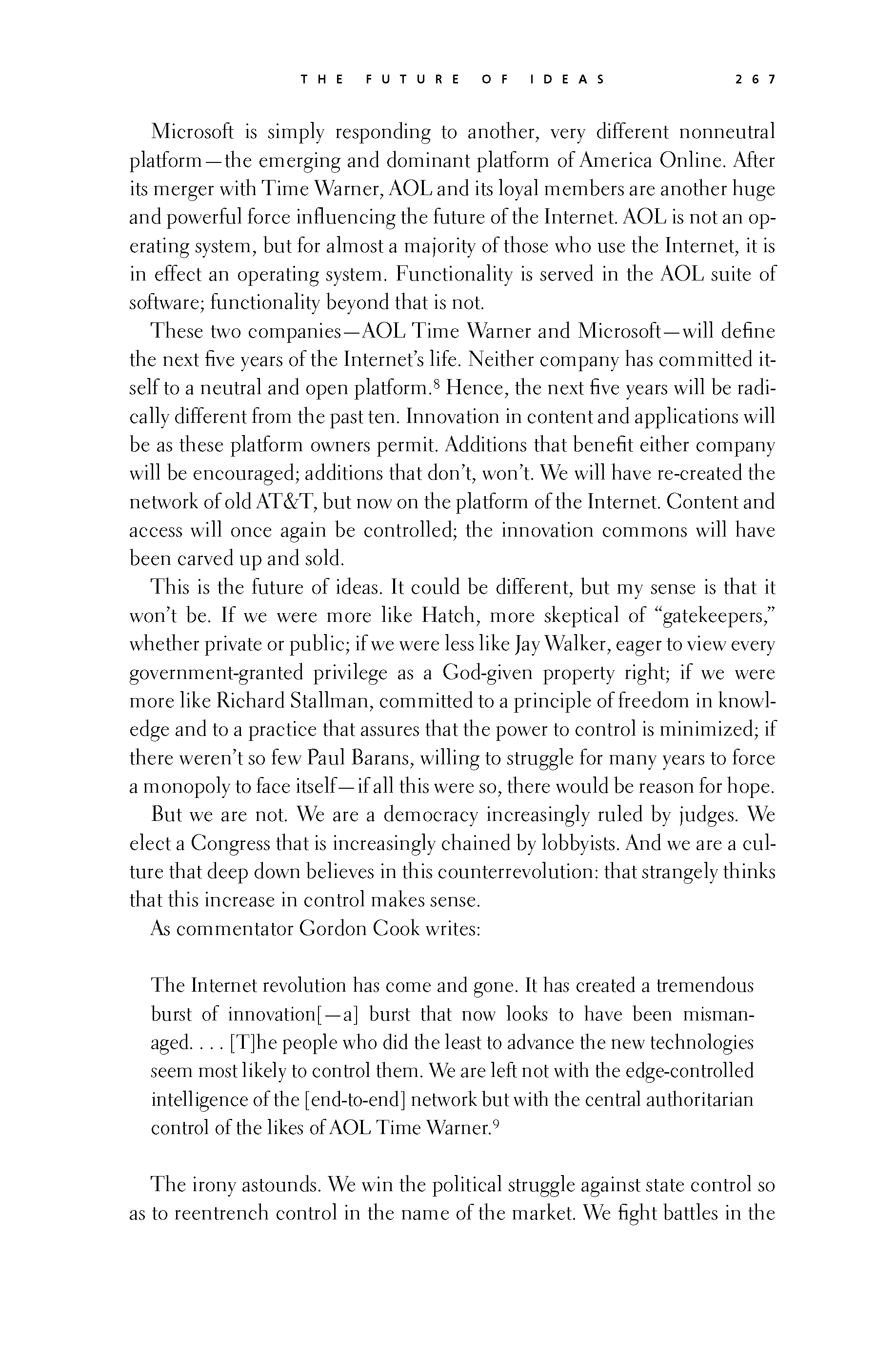 p266 _
-chap- _
toc-1 _
p267w _
toc-2 _
+chap+ _
p268
p266 _
-chap- _
toc-1 _
p267w _
toc-2 _
+chap+ _
p268
Microsoft is simply responding to another, very different nonneutral
platform -- the emerging and dominant platform of America Online. After
its merger with Time Warner, AOL and its loyal members are another huge
and powerful force influencing the future of the Internet. AOL is not an op-
erating system, but for almost a majority of those who use the Internet, it is
in effect an operating system. Functionality is served in the AOL suite of
software; functionality beyond that is not.
These two companies -- AOL Time Warner and Microsoft -- will define
the next five years of the Internet's life. Neither company has committed it-
self to a neutral and open platform.[15-8] Hence, the next five years will be radi-
cally different from the past ten. Innovation in content and applications will
be as these platform owners permit. Additions that benefit either company
will be encouraged; additions that don't, won't. We will have re-created the
network of old AT&T, but now on the platform of the Internet. Content and
access will once again be controlled; the innovation commons will have
been carved up and sold.
This is the future of ideas. It could be different, but my sense is that it
won't be. If we were more like Hatch, more skeptical of "gatekeepers,"
whether private or public; if we were less like Jay Walker, eager to view every
government-granted privilege as a God-given property right; if we were
more like Richard Stallman, committed to a principle of freedom in knowl-
edge and to a practice that assures that the power to control is minimized; if
there weren't so few Paul Barans, willing to struggle for many years to force
a monopoly to face itself -- if all this were so, there would be reason for hope.
But we are not. We are a democracy increasingly ruled by judges. We
elect a Congress that is increasingly chained by lobbyists. And we are a cul-
ture that deep down believes in this counterrevolution: that strangely thinks
that this increase in control makes sense.
As commentator Gordon Cook writes:
____ The Internet revolution has come and gone. It has created a tremendous
____ burst of innovation[ -- a] burst that now looks to have been misman-
____ aged... [T]he people who did the least to advance the new technologies
____ seem most likely to control them. We are left not with the edge-controlled
____ intelligence of the [end-to-end] network but with the central authoritarian
____ control of the likes of AOL Time Warner.[15-9]
The irony astounds. We win the political struggle against state control so
as to reentrench control in the name of the market. We fight battles in the
[[267]]
p266 _
-chap- _
toc-1 _
p267w _
toc-2 _
+chap+ _
p268